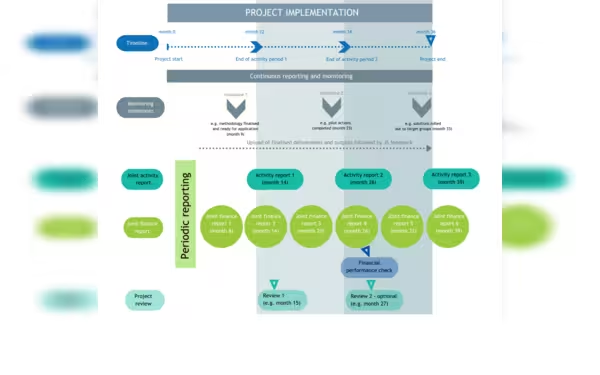Tuesday, July 2, 2024 04:37 PM
Planning Commission Urges Strict Financial Compliance
- PSDP reduced by 25% to Rs717 billion, impacting national development
- Planning Commission emphasizes need for corrective measures in upcoming budget
- Challenges include delays in project completion, diversion of funds, and back-loaded release strategies
 Image Credits: Interreg Central Europe
Image Credits: Interreg Central EuropeThe recent reduction in development spending has raised concerns about the impact on the Public Sector Development Programme (PSDP). The Planning Commission emphasizes the need for corrective measures to address challenges such as delays in project completion and the diversion of funds. Prioritizing key sectors and adhering to financial limits set by the National Economic Council are crucial for enhancing national development.
The recent reduction of development spending by 25% to Rs717 billion has raised concerns about the impact on the Public Sector Development Programme (PSDP). This decrease has led to a drop in the size of the PSDP from 1.7% of GDP in 2013 to 0.9% in 2023-24. The Planning Commission has expressed worries about the diversion of budgetary resources towards constituency politics and deficit financing, which contradicts decisions made by the National Economic Council (NEC).
A formal summary from the Ministry of Planning, Development, and Special Initiatives has emphasized the necessity for corrective measures in the upcoming budget. The Ministry of Finance has been urged to strictly follow the financial limits set by the NEC to prevent any hindrance to national development. Specific instructions include providing foreign exchange cover as required, exempting development spending from austerity measures, and avoiding the diversion of funds from development projects.
The summary also highlights that the current year's PSDP was reduced by 25% to Rs717 billion, despite an approved allocation of Rs950 billion. This consistent reduction in the size of the PSDP has resulted in delays in project completion and increased costs. The Planning Commission has pointed out that this decline in the PSDP, both in terms of GDP percentage and real value, has had a negative impact on development investment in the country.
Challenges such as back-loaded release strategies, deductions from cash development loans, and the diversion of funds to non-development areas have further complicated the execution of development projects. The Planning Commission stresses the importance of a more efficient release strategy and the avoidance of deductions that disrupt project timelines and budgets.
Moreover, the inclusion of provincial projects in the federal PSDP has slowed progress on national mega-projects. The Planning Commission recommends prioritizing funding for strategic ongoing projects, particularly in the water, transport, and energy sectors. It also highlights the obstacles posed by liabilities from the previous year, rupee depreciation, and the increasing demands of projects.
The challenges faced by government development spending require immediate attention and strategic planning to ensure the effective implementation of projects. Adhering to the financial limits set by the NEC, prioritizing key sectors, and streamlining release strategies are crucial steps towards enhancing national development. By addressing these issues proactively, the government can overcome obstacles and promote sustainable growth in the country.













